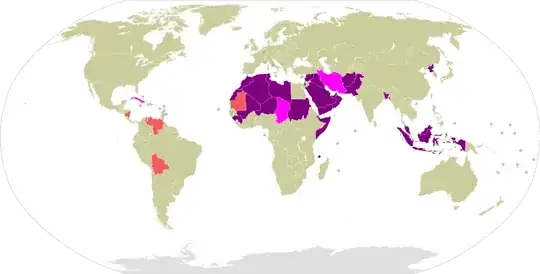From a comment by Amnesty International Australia's Facebook account, since deleted, with a screenshot having 212 retweets and 235 likes (text courtesy of the Algemeiner)
The countries that banned the passport have done so for a reason. They are aware of the atrocities committed by the Israel Defence Force and have seen Palestinians being displaced from their homes for the illegal settlements.
I know that motivation questions aren't allowed, so rather than trying to look at motivations, I'll look at dates - whether the purported cause occurred before the effect. I've done some searching, but while there's plenty of articles mentioning the ban on Israelis, I haven't found so far mention of when the bans started.
Did the ban on Israelis postdate the construction of Israeli settlements which involved Palestinians being displaced?
